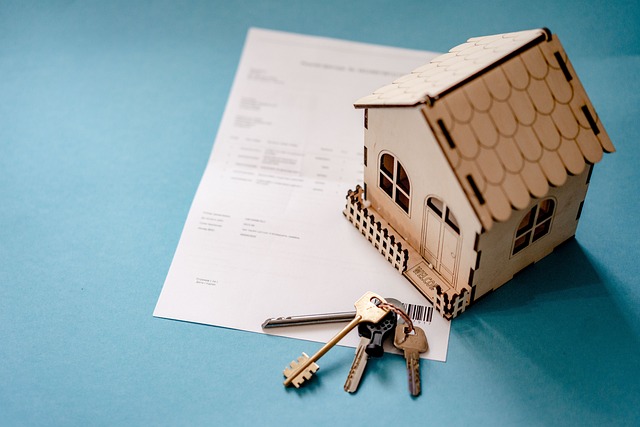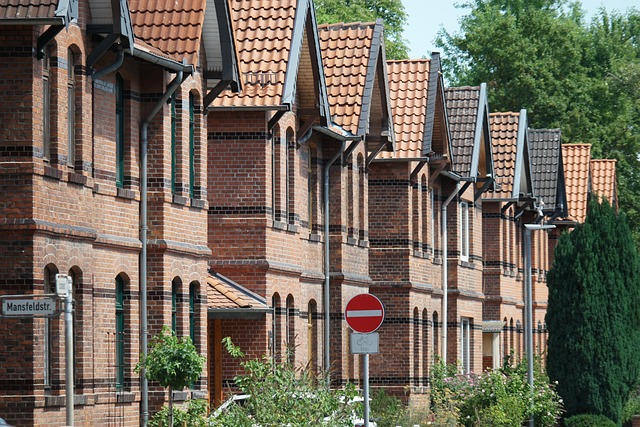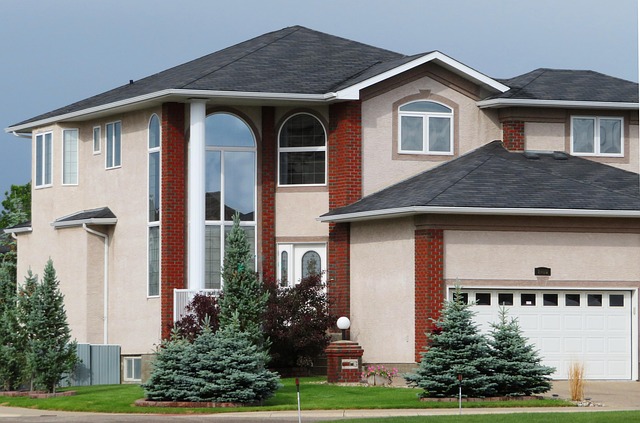Executive condos in Singapore are a specialized public housing segment, designed by HDB to offer premium yet affordable homes to high-income earners (citizens and permanent residents). They are characterized by strict eligibility criteria, controlled pricing, and government support for first-time buyers through various schemes. The cost breakdown includes the purchase price, legal fees, stamp duties, and maintenance charges. Singapore's supportive homeownership policies, including grants and incentives, aim to make executive condos accessible while maintaining a balanced real estate market. Understanding legal documentation, property management laws, and market trends is crucial for prospective buyers navigating this competitive segment.
In Singapore, executive condos (ECs) offer a unique housing option with a lower entry cost compared to private condominiums. This article navigates the legal landscape surrounding ECs, providing insights for prospective buyers. We explore the definition and regulatory framework of these properties within Singapore’s real estate market. Understanding eligibility criteria, cost breakdowns, and government incentives is crucial for informed decision-making. Additionally, we delve into legal documentation, property management regulations, common disputes, and future trends shaping the EC market, including recent regulatory changes impacting the cost of executive condo in Singapore.
- Understanding Executive Condos: Definition and Legal Framework in Singapore
- Eligibility Criteria for Purchase: Who Can Own an Executive Condo?
- Cost Breakdown: Expenses Associated with Acquiring an Executive Condo
- Government Schemes and Incentives: Financial Assistance for Buyers
- Legal Documentation and Contracts: Ensuring a Smooth Transaction
- Property Management and Strata Laws: Rights and Obligations of Owners
- Common Legal Issues and Disputes in Executive Condo Transactions
- Future Trends and Regulatory Changes Affecting Executive Condo Market
Understanding Executive Condos: Definition and Legal Framework in Singapore

Executive condos, a unique housing concept in Singapore, are a form of public housing designed for executives and professionals earning a certain threshold income. These condos operate under a legal framework governed by the Housing & Development Board (HDB) and are distinct from private condominiums. The definition extends beyond just luxury living; it’s a carefully curated residential option aimed at addressing the specific needs of high-income earners while ensuring affordability through government intervention.
In Singapore, the legal considerations surrounding executive condos are clear-cut. The HDB sets guidelines for eligibility, income thresholds, and pricing structures to manage the cost of these properties, which is a key aspect—the cost of executive condo in Singapore. This controlled pricing ensures that only those who meet the criteria can purchase them, maintaining a balance between providing premium housing and keeping it accessible within certain economic parameters.
Eligibility Criteria for Purchase: Who Can Own an Executive Condo?

In Singapore, an Executive Condo is a unique property category designed to provide affordable housing for citizens and permanent residents who meet specific eligibility criteria. The primary goal is to ensure homeownership is accessible to those who have demonstrated financial stability and commitment. To purchase an Executive Condo, individuals must be either Singapore Citizens or Permanent Residents (PRs). This rule is in place to encourage long-term residency and investment in the property market.
The Cost of Executive Condos in Singapore varies across different projects and locations, but they are generally more affordable than private condominiums. The government provides various schemes and incentives to support first-time buyers, including grants and subsidised loans, making it easier for eligible individuals to enter the property market and own their executive condo. These policies aim to address the nation’s housing needs while ensuring a balanced and sustainable real estate environment.
Cost Breakdown: Expenses Associated with Acquiring an Executive Condo

Acquiring an executive condo in Singapore involves a multifaceted financial commitment. The cost breakdown includes various expenses that prospective buyers should be aware of before making such a significant investment. Firstly, there’s the purchase price itself, which can vary greatly depending on factors like location, size, and view. This is often the most substantial upfront cost, but it’s not the only one.
Additional expenses include legal fees for conveyancing services to handle the transfer of ownership, survey and valuation costs, as well as stamp duties, which are government charges levied on property transactions. Maintenance fees are another recurring cost associated with executive condos, covering the upkeep of common areas and facilities, which can vary between developments. Understanding these costs is essential when budgeting for an executive condo in Singapore.
Government Schemes and Incentives: Financial Assistance for Buyers

In Singapore, the government plays a significant role in supporting home ownership, especially for executive condos (ECs). Various schemes and incentives are designed to make the cost of an EC more affordable for buyers. One notable program is the Home Ownership Scheme (HOS), which provides financial assistance in the form of grants and subsidies. These initiatives aim to encourage citizens and permanent residents to purchase their first home, including EC units, by alleviating some of the financial burden associated with the high cost of living in Singapore.
Eligible buyers can receive substantial support, such as the Grant for Young Families (GYF) or the Special Purchase Scheme (SPS), which offer discounts on the purchase price of an EC. These government schemes not only make owning an executive condo more accessible but also reflect the country’s commitment to ensuring a diverse and sustainable housing market. By providing financial assistance, Singapore aims to create a balanced ecosystem where various segments of society can benefit from home ownership, including those looking to enter the property market for the first time.
Legal Documentation and Contracts: Ensuring a Smooth Transaction

When considering an executive condo purchase in Singapore, understanding the legal documentation and contracts involved is paramount to ensuring a smooth transaction. Buyers must meticulously review all relevant documents, including sales and purchase agreements, to comprehend their rights and obligations. These contracts are legally binding and outline essential details such as pricing, payment terms, delivery dates, and any specific restrictions or conditions associated with the property.
At this stage, it’s crucial to seek legal advice from qualified professionals who can guide buyers through the intricacies of Singapore’s real estate laws. They will help ensure that all necessary paperwork is in order, protecting both the buyer’s investment and their interests in the cost of an executive condo. This meticulous approach fosters transparency and trust throughout the entire process.
Property Management and Strata Laws: Rights and Obligations of Owners

In Singapore, executive condos operate within a legal framework that includes property management and strata laws, which delineate the rights and obligations of owners. These laws are crucial in ensuring smooth coexistence and the maintenance of these upscale residential properties. Owners have a collective responsibility to uphold the common areas and facilities within their executive condo, while the management company oversees these tasks, including regular upkeep, security, and other services vital for residents’ comfort and safety.
Understanding these legal considerations is essential for prospective buyers considering the cost of an executive condo in Singapore. Strata laws also cover dispute resolution mechanisms, financial management practices, and the election of committee members, all of which impact the overall living experience. Awareness of these aspects helps owners make informed decisions regarding their investment in high-end condominium properties, aligning with the legal framework designed to protect both property values and resident rights.
Common Legal Issues and Disputes in Executive Condo Transactions

In the dynamic market for executive condos in Singapore, several legal considerations come into play when engaging in transactions. One of the most prevalent issues involves disputes over contract terms and conditions, particularly regarding the interpretation of sales and purchase agreements. Given the high value of these properties, buyers and sellers may find themselves at odds over price adjustments, hidden costs, or unforeseen repairs, which can lead to lengthy legal battles.
Additionally, issues related to property boundaries and common areas are not uncommon. Condo owners may dispute the extent of their ownership rights, especially in complexes with intricate layouts or shared amenities. These disputes often require careful consideration of relevant laws and regulations governing condominium developments in Singapore. Understanding the cost of executive condos and managing expectations from the outset can help mitigate potential legal issues downstream, ensuring a smoother process for all parties involved.
Future Trends and Regulatory Changes Affecting Executive Condo Market

The executive condo market in Singapore is dynamic, influenced by future trends and regulatory changes that shape its landscape. As the city-state continues to evolve, so do the needs and preferences of its residents, driving innovations in condo development. One notable trend is the increasing demand for smart homes and integrated technology within executive condos, reflecting a global shift towards digital living. This trend poses both opportunities and challenges, as developers must keep pace with technological advancements while ensuring data privacy and security.
Regulatory changes also play a significant role in shaping the executive condo market. Efforts to control property prices and address social equity concerns have led to policies like the Total Developer Profit Margin (TDPM) cap and additional buyer’s stamp duties (ABSD). These measures impact not just construction costs but also the ultimate price points of executive condos, influencing consumer behavior and investment strategies. Keeping abreast of these trends and regulatory shifts is crucial for both developers and prospective buyers navigating the dynamic cost of executive condos in Singapore.
In conclusion, executive condos in Singapore present a unique opportunity for aspiring property owners due to their combination of exclusive living, government incentives, and strategic location. However, navigating the legal landscape is crucial to ensure a successful purchase and long-term satisfaction. Understanding eligibility criteria, cost breakdowns, and property management laws is essential. By staying informed about government schemes, common legal issues, and future regulatory changes, prospective buyers can make well-informed decisions regarding this vibrant segment of the Singapore property market, especially concerning the current Cost Of Executive Condo In Singapore.
